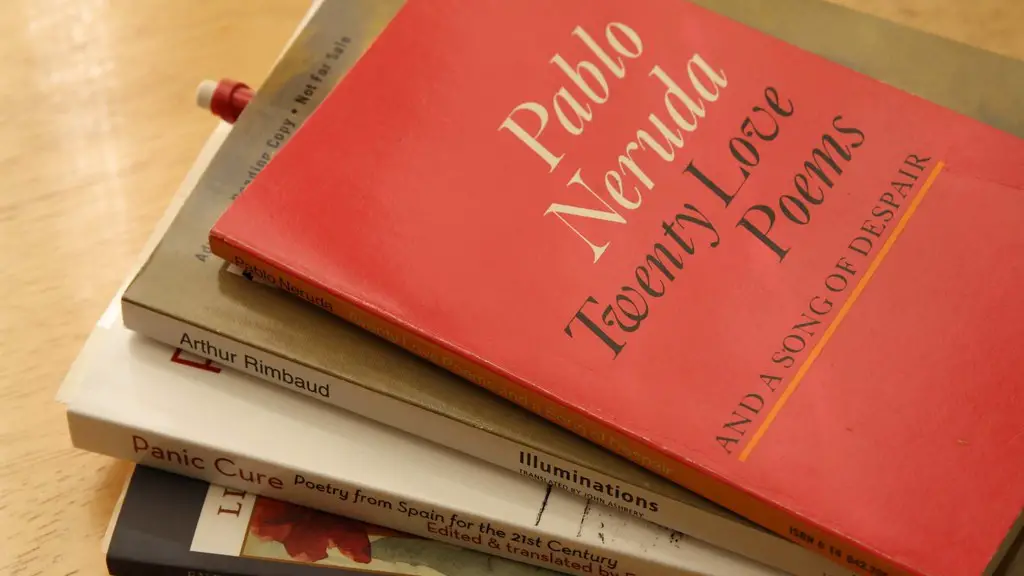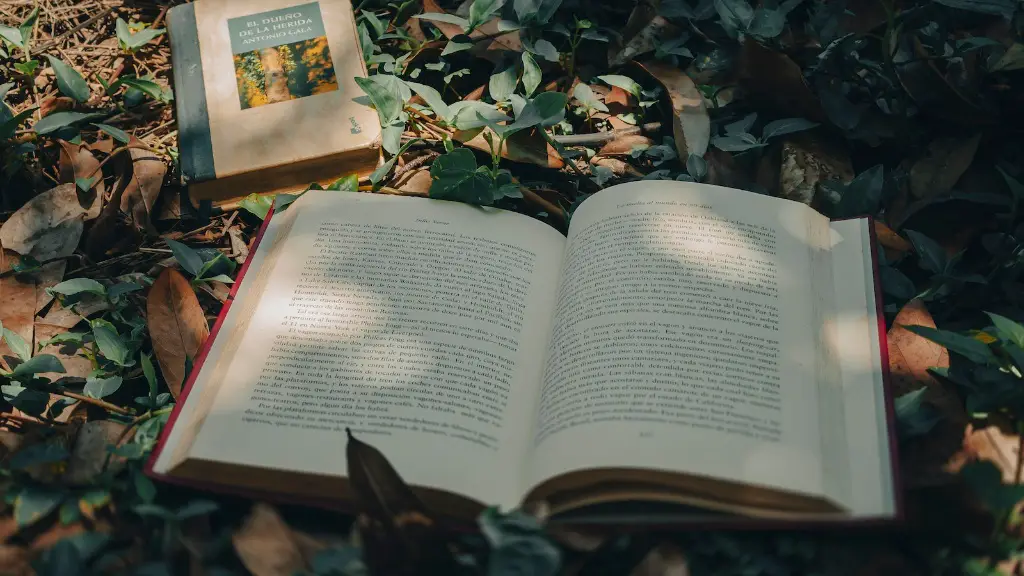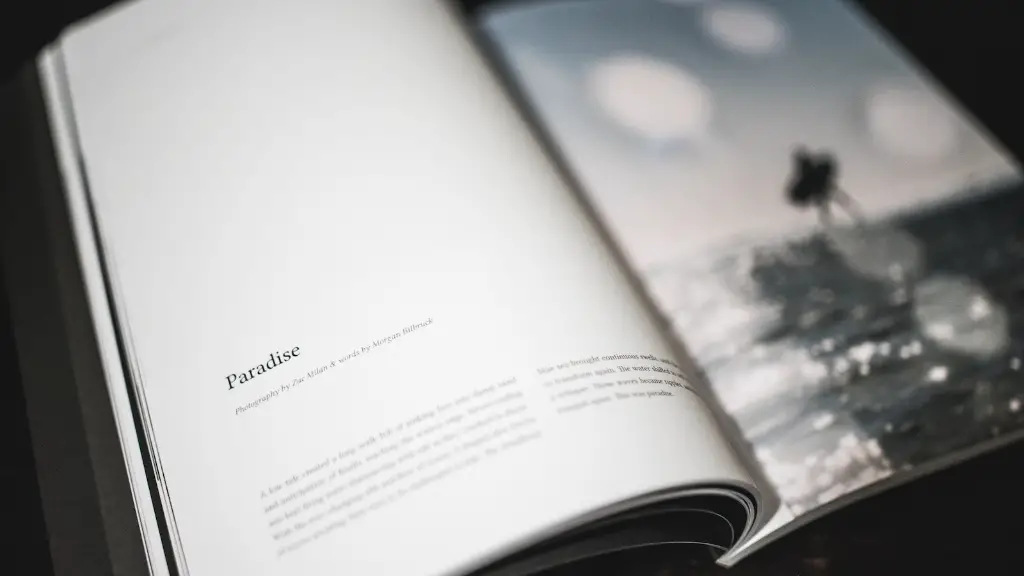The 1989 movie Dead Poets Society captivated audiences with its storyline of a group of teenage boys attending a conservative, all-boys boarding school in the late 1950s. The boys are introduced to a charismatic new English teacher Mr. Keating, who encourages them to embrace the freedom of expression that poetry can offer. With his guidance and direction, these boys develop from timid and rebellious to inspired poets who don’t just appreciate but also decide to champion the power of writing. This iconic movie and its underlying message of finding expression in poetry are still inspiring generations today.
Poetry is a complex and multifaceted form of artful communication. It dates back centuries and is widely recognized as one of the oldest forms of literature in history. It is often defined as writing made up of lines and stanzas of varying size and lyrical qualities that, when read aloud, possess a heightened effect of beauty and emotional depth not found in other literary works. Poetry dives deeper than traditional prose, expressing emotions and ideas in layered and profound ways.
But what is it that makes this “dead” art form—once thought to be completely out of practice—still exist in modern popular culture? Despite its name, poetry is far from dead. It has remained a powerful tool throughout the ages, creating an impact on society and inspiring people to action. It remains an integral part of our culture, with many famous poets and works known even to this day. In societies with freedom of expression, poets have been instrumental in amplifying powerful messages about social and political issues and providing comfort to those in need.
It is important to recognize how poetry has had a profound influence in our lives. From classical works of Shakespeare to modern-day poets such as Maya Angelou, poetry has always been a way for people to address issues of injustice and oppression, to share their hopes and dreams, and to comfort one another through the expression of feelings and emotions for which there are no other words. Moreover, its ability to reveal truth and insight in often surprisingly brief statements has made it an invaluable tool of communication.
During recent years, we’ve seen a resurgence of interest in poetry as a means of self-expression, with many people turning to it in efforts to find solace, clarity and understanding. For those who feel marginalized or unheard, it may represent a powerful platform through which to channel their voices and stories. Additionally, due to the complexity of its structure and beauty of its language, poetry can act as a powerful form of therapy, enabling people to process their emotions, evaluate their life experiences, and gain a better understanding of themselves.
The impact of poetry is unmistakable. It has long been used to shape society and manifest positive change, and it will continue to be a powerful source of expression for generations to come. That influence, from the Dead Poets Society to contemporary culture, no doubt helped to bring poetry to modern-day relevance. To quote the iconic line of Mr. Keating – “Make your lives extraordinary” – we must remember the power of poetry and use it as a means of both understanding our own experiences, and having a meaningful impact on the world.
Poetry’s Place in Education
The importance of poetry in education has been widely recognized for countless centuries, however it is still a common misconception that poetry is merely some archaic form of literature. Although this type of literature may have unique syntax, it is not necessarily any more difficult to understand than other works. In fact, poetry can be a powerful learning tool, an effective way to increase student engagement and, most importantly, instill a respect and appreciation for language and innovative thought.
In recent years, there has been an increased focus on teaching students to think critically and explore new ways of expressing ideas. Teaching poetry is one effective way to stimulate students to do this. It encourages them to experiment with language and innovate with their own words, which helps to enhance their writing skills. It also enables them to reflect on their own feelings, to ask and answer questions, and to express themselves in a meaningful way.
Although poetry may not be included as a specific disciplinary course, it can be implemented and woven into all other subject areas, making learning engaging and interactive. It can also be used in all levels of education, from elementary school to advanced university courses. For students with special needs, poetry can be a beneficial form of self-expression, providing them with an opportunity to communicate their emotions in unique and creative ways.
Ultimately, instilling a love for poetry in students not only enables them to become better writers, but also provides them with a better understanding of themselves and their world. Poetry can be a powerful way to change a student’s point of view and encourage them to form connections and draw meaning from both the written and spoken word.
The Legacy of Dead Poets Society
The movie Dead Poets Society had a lasting impact on how modern-day poets are viewed and influenced many aspiring writers to embrace the creative expression of language. While the movie was indeed fictional, it was based on the real-life journey of a group of boys attending the same boarding school in the late 1950s. It is no doubt that the iconic words and phrases delivered by the late Robin Williams character, Mr. Keating, have become universally known and passed on through generations.
This movie, though outdated in many ways, maintains a powerful metaphor – that of young people standing up against the restraints of traditionalism in order to make their lives extraordinary. Within the movie, the “Dead Poets Society” serves as a symbol of freedom and power; of daring to be the “knights of pen and paper” that Mr. Keating encourages them to be.
This 1989 movie further emphasizes the importance of poetry as a form of expression and its impact on shaping our culture and world. It is a reminder of the power of words and the impact that poets—both contemporary and classic—continue to have on our lives. Its legacy is one that should not be forgotten.
Prominent Poets in Society
Throughout our history, poetry has been ubiquitous. It has provided a way for people to explore their souls, express their emotions and effectively communicate ideas. Countless one-of-a-kind poets have existed, each making their own unique mark on our culture. The works of prominent poets such as William Wordsworth, Maya Angelou, Walt Whitman and Emily Dickinson have inspired people to strive for betterment and greatness. Their legacy lives on, and still impacts us today.
Modern-day poets have in many respects followed suit, raising their voices on matters of social justice and providing solace to many in need. Poets such as Ocean Vuong, Rupi Kaur and Amanda Lovelce have become household names and continue to use their words to amplify the messages of equality and love. Even despite our current digital age, the power of their words continues to touch and unveil the stories of many.
It is important to recognize the impact of poets in a modern world of endless noise. As Dead Poets Society continues to remain iconic, it serves as a metaphor for poets everywhere. The power of poets to move and influence society can be seen around us and should be highlighted and acknowledged.
The Power of Poetry
The power of poetry lies within its ability to convey much more than traditional prose. By weaving together troubling yet beautiful verses, poets are able to captivate and move us in ways that are often times inexplicably unique. Its unique structure allows readers to find or discover personal understandings of the poet’s words.
Poetry is one of the oldest forms of literature and continues to be used in many aspects of life. It is often used to commemorate or memorialize events or people, to promote a cause, or to explore complex or difficult emotions with greater depth and precision. Its use of figurative language and imagery has a powerful effect on the reader, allowing them to experience emotion, even when the words are written by someone else.
Whether it be the written form or the spoken word, poetry continues to offer solace and comfort in our increasingly chaotic world. Its power to transform and its ability to create meaningful connections gives it an element of strength and importance in an uncertain world.
The Impact of Poetry Today
It is clear that poetry, despite its classification as a ‘dead art form’, still has an impactful presence in today’s society. It is a unique form of communication with the potential to spark social and political change, to drive introspection, and to facilitate meaningful connections amongst strangers.
The messages of the poets of the past and of modern times undoubtedly support the power of poetry in our lives. It is a potent form of expression, one that can both shape our beliefs and enable us to express our innermost feelings. With the continued advancements of technology, poets can now find additional avenues to share, reach audiences around the globe, and fully embrace this powerful tool of communication.
In conclusion, whether or not you have seen Dead Poets Society, it is clear that this once thought to be ‘dead’ form of art still holds power and important in society. Poetry continues to be a platform for change and transformation, enabling individuals to share their stories, express emotions, and create meaningful connections. As we move forward, let us continue to use poetry in our lives as a means of communication and inspiration.





